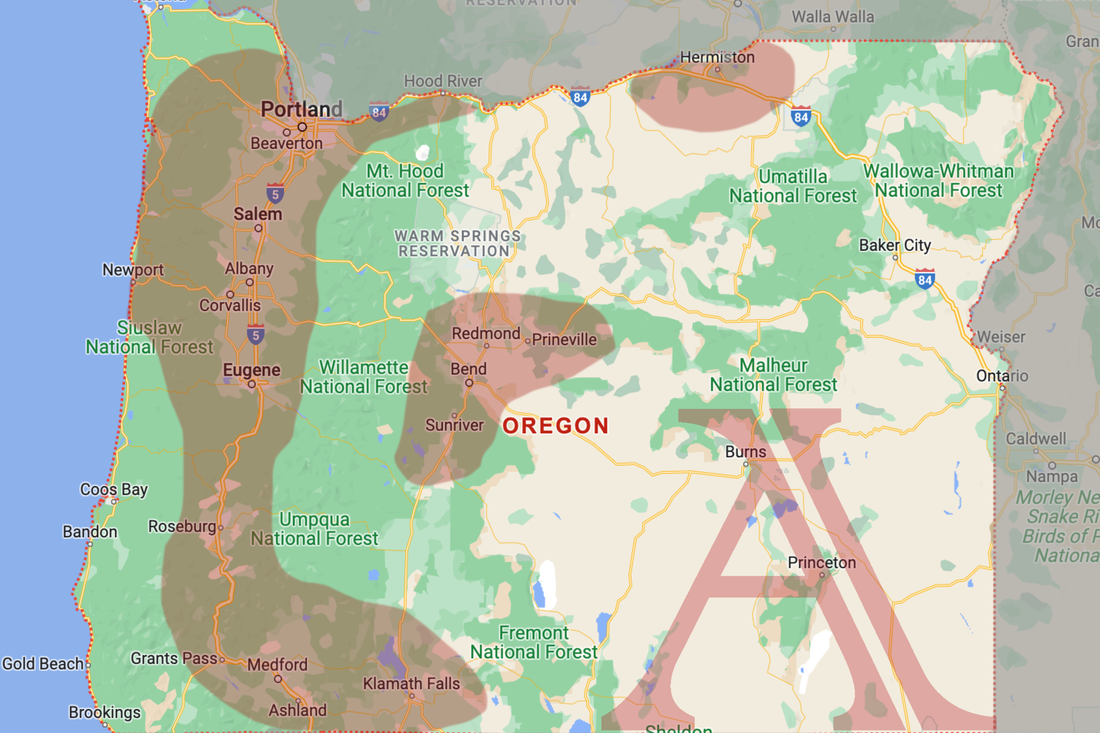|
Common Ground Magazine July/August 2019 BY KATIE ANDERSON, CMCA, AMS, PCAM It can be a tall order to enforce your association’s governing documents. Doing so in a way that promotes community spirit can be even harder, but you can find a way to be effective, flexible, and consistent. COMMUNITY ASSOCIATIONS have rules, regulations, and architectural guidelines for good reasons. They provide certainty, order, and safety. They help communities protect and enhance property values. And if they're necessary and reasonable, they promote community harmony. Regardless of size or shape, every community association should be striving to enforce their rules properly. The goal is simple for boards: Follow the rules and enforcement procedures detailed in your association governing documents. Yet conflicting views and misaligned expectations can create complications. How can a board ensure practices are in place to help promote community spirit and enforce the provisions? These can be conflicting jobs. How does a board do its job fairly without bringing personal agendas to the table and promote value within the community? It's a tall order and a critical one. When a community is inflexible and rigid in its approach to governance, owners won't like to live there, managers won't want to work there, and the community suffers. If your association lacks structure, and owners are frustrated because the board is too relaxed, the community also suffers. If your association is too rigid or too flexible, your board can follow a few simple steps to ensure your governing process is effective, flexible, and consistent. TRANSPARENCY If the board is to be taken seriously, it needs to be inclusive and transparent. You should be holding open board meetings and annual elections, adding open forums to agendas for owner feedback, and being available and visible in the community. A few more ideas include: ▋ Set an annual calendar of board meetings and share dates with the community in January, giving owners enough time to plan to attend. ▋ Encourage and overcommunicate owner involvement in the voting process for the annual election. Email, call, post signs, and possibly send text messages. ▋ Start each board meeting with an open forum to allow for broad owner input. When a community is inflexible and rigid in its approach to governance, owners won't like to live there, managers won't want to work there, and the community suffers.
CLEAR GUIDELINES While a board doesn't always have control over the provisions in the covenants, conditions, and restrictions, and bylaws, the governance process typically requires the board to develop policies related to enforcement and fines. It is extremely important that these policies are clear about what happens when a violation exists—from communication steps, grace periods, and the process to request exceptions to what the owner needs to do to reach compliance. Every community should have these three enforcement policies: Compliance and enforcement policy. This should include each step that will be taken by the community if a violation is identified. It should be clear on the grace period for each step. Fine policy. Be concise about when fines will be imposed and the process for the owner to file an appeal. Hearing policy. If an owner requests a hearing, how will that process be handled, and within what timeframe can the owner anticipate an answer? COMMUNICATION There are many forms of communication, and if you haven't already caught on, the key to most of these processes is flexibility. It is always hard to unravel situations when owners have been out of compliance for months, especially when they come to the board disputing fines and the association has sent letters, owners claim they were never received. This situation can be debated from both sides. Sending a letter meets the requirements in most states for communication, but ask: If compliance is the goal, are there steps that can be taken to gain it quicker? Imagine if a board member or manager in this case had picked up the phone or sent an email to follow up with the owner. Not only would it avoid the fines on the account, it would build a spirit that “we care" for your well-being. It instills trust between the association and the owner. The moral of the story? Be flexible and broad with your communication. Don't be afraid to pick up the phone or send a text message. Different people require different forms of communication. Be dynamic in your approach. A few more communication tips include: Kind language. The first communication an owner receives about a potential compliance issue should emphasize that it is a courtesy notice and you are just reaching out to help educate them about the guidelines. Offer to discuss the issue in person and be open to answering questions. Newsletters. If you're seeing an increase in a particular violation throughout the community, utilize communication tools to educate homeowners on the issue. I believe that the cases where an owner intentionally violates the rules are rare. Most of the time, noncompliance is due to a lack of understanding. Town halls. In the spirit of trying to create community, face-to-face communication is critical to the overall mix. If the board is seeing an increase in neighbor-to- neighbor issues or a spike in noncompliance, hold a town hall meeting and talk it through. This will engage your residents in finding a solution and create some responsibility in solving the problems. In the spirit of trying to create community, face-to-face communication is critical to the overall mix. HEARINGS In many states, the requirement for a hearing may be mandatory before fines can be assessed. This process must be conducted impartially, and all parties need to be respectful. Each party needs to know when they will be able to speak and what information should be prepared prior to the meeting. Here are a few tips to ensure the process runs smoothly: ▋ Give all parties equal time to speak. ▋ Ensure that the hearing panel is impartial to the situation. If there are conflicts of interest, lay them out at the beginning of the meeting and let all parties know how the panel has addressed them, either how they are overcome, or if the individual is recusing themselves. ▋ Let the parties know when a decision will be reached and how they will receive notice of the decision. ▋ The board or hearing panel should be open to compromise. A one-size-fits-all approach is unadvisable. This will create more conflict in the long run. CONSISTENCY AND FLEXIBILITY Having these foundations is important, but they will not prevent compliance issues in your community. These are tools that need to be in place for every successful community. So how does the board move toward a consistent but flexible process? Imagine this: An owner is sent a letter in February that he needs to paint his home.The board takes a hard stance that it needs to be painted in that calendar year, and he has 30 days to confirm that a contractor has been secured. The letters to the owner go unanswered, the manager leaves a message and sends an email, both unanswered. After 30 days, the board sends a final demand and, again, it goes unanswered. After two months, the board begins assessing fines. This process goes on for a few more months. In September, the owner comes into the management office and explains his family had a new baby born in February, and that the family has been dealing with the failing health of his wife's parents. He is asking for leniency and explains that the mounting expenses for his family will not allow him to get the required maintenance completed this year. How should the manager and board respond? Don't confuse “how should" with “how can." The board easily can explain to this owner that the rules are the rules, and he needs to comply. It can continue to assess fines to the owner until the work is completed, and it can enforce a strict interpretation of the guidelines. However, that's not what a board should do. What will the relationship with the owner be when the situation is resolved? Will the family believe it lives in a place that promotes community spirit or that the family lives among neighbors who have empathy for their life circumstances? Will this decision enhance the community's reputation? You can easily fill in the blanks on these questions. The board should have face-to-face conversations with this owner and come to a compromise—one that works for the owner but also meets the community guidelines and ultimately achieves compliance having the home painted. There are examples that might be more extreme than an extended timeline for painting a home. The board may have to be flexible on blatant violations of the guidelines that have a bigger impact on the neighbors, and it's always my recommendation that the parties try to find middle ground and agree on timelines for compliance. These face-to-face conversations can be contentious at the time, and the parties might be reluctant to get around the table, but board members and managers need to get comfortable with leading these conversations and helping communities and owners find a way to yes—from both sides. Katie Anderson is founding owner of Aperion Management Group, AAMC, in central Oregon. [email protected]
0 Comments
Bend, OR—July 9, 2019 Do you enjoy fine dining, spectacular views, live music, AND doing good for your community? The 4th Annual Farm to Fork Dinner and Fundraiser has you covered! Held again this year at Mt. Bachelor’s Pine Marten Lodge, this popular event is hosted by Aperion Management Group and benefits Heart of Oregon Corps and its work to inspire and empower positive change in the lives of young people through jobs, stewardship, and education.
Guests at Farm to Fork will have the good fortune to experience a five-course meal created in collaboration between Mt. Bachelor’s Executive Chef Jon Calvin and the team behind Citizen Bar & Kitchen. Chef Calvin, who arrived at Mt. Bachelor this winter, trained at Western Culinary Institute in Portland, OR, and has honed his craft at top Oregon resorts. Citizen, owned by Sanda Costello and Gene Soto of Bowtie Catering, opened in downtown Bend last year to immediate acclaim. “My approach to food is quite simply to make the most of what is available,” says Chef Calvin, “to find ingredients that are at their best and to care for them and prepare them in the best possible manner.” Drawing on deep partnerships with local farms, the chefs are designing an exclusive menu that highlights the best seasonal and regional fare Central Oregon has to offer. The evening begins with a lift ride to the upper lodge, cocktail hour, and live music by Tim and Ness (formerly known as Gambler & Thief), followed with gourmet dinner served by Heart of Oregon youth and a fantastic sunset view from the deck at nearly 8,000 feet. Heart of Oregon youth will also describe their experiences at Heart of Oregon and the impact the programs have had on their lives. “When I started here I didn’t talk for the first four months, unless spoken to,” Kenny shared at last year’s Farm to Fork event. “Now I’ve become a leader and a role model. Heart of Oregon inspired me and gave me a work ethic. It pretty much became my family.” The event will take place on the evening of Sunday, September 8, 2019. Limited public tickets are now available at heartoforegon.org. Aperion Management Group has hosted the event since its first year and continues to champion Heart of Oregon’s work in the community this year as the Title Sponsor. A limited number of corporate table sponsorships are still available. About Heart of Oregon Corps Heart of Oregon Corps is a nonprofit organization that trains tomorrow’s workforce today. They are invested in inspiring and empowering positive change in the lives of Central Oregon youth through jobs, education, and stewardship. Their programming creates pathways out of poverty while stimulating regional economic growth. The “work-learn-earn” model invests in local young people, many of whom come from disadvantaged backgrounds, to prepare them for the workforce and to encourage their self-sufficiency. Every year, Heart of Oregon Corps provides job skills training, education, and leadership development to over 300 local young people ages 16-24. Apply at heartoforegon.org. About Aperion Management Group, LLC Aperion Management Group, LLC is Central Oregon's first and only Accredited Association Management Company (AAMC) that specializes in Homeowners Association (HOA) management in Central Oregon. With over fifty years combined experience in management, building and development, Aperion strives to create a more responsive and efficient management process for communities in and around Bend. To learn more visit www.aperionmgmt.com. |
Archives
February 2024
|
Homeowners' Association (HOA) management services, now serving all of OregonPortland, Bend, Salem, Eugene, Medford and all surrounding areas.
Mailing Address:
855 SW Yates Drive Suite 202 Bend, OR 97702 VISITORS BY APPT. ONLY |
Contact UsPhone: 541-389-3172
Fax: 541-678-5204 Email: customerservice@aperionmgmt.com |




 RSS Feed
RSS Feed
